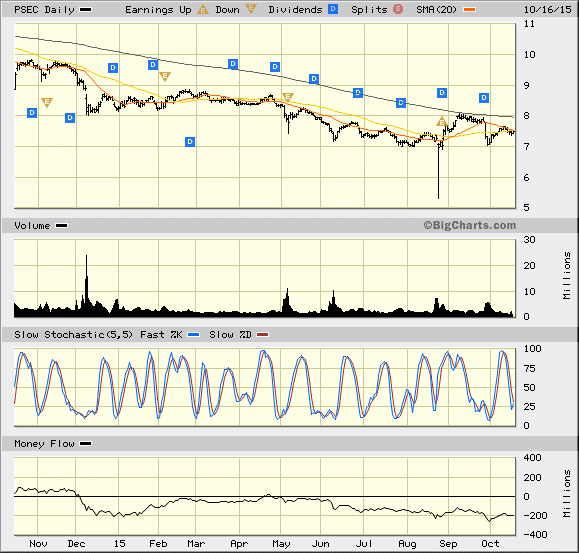Looking for Yield that Big Money Wants to Own
A lot goes into individual stock selection when hunting for attractive yields. We want to make sure that any yield north of 5% is not being manufactured from smoke and mirrors, but rather stems from earned income from the underlying business that supports that particular payout. Today, with T-bills yielding zero percent, the 10-year Treasury Note at 2.02% and the 30-year Treasury Bond paying a paltry 2.82%, it’s no wonder income investors are looking outside conventional income streams to finance their lives.
While the stock market has enjoyed a nice rebound off the late September lows, many high-yield sectors remain at oversold levels that beg further investigation about whether the same big funds that punished the junk bond and most other high-yield sectors are going to return with the same level of enthusiasm. If the economic forecast of fourth-quarter U.S. gross domestic product (GDP) coming in below 1.0% is at all accurate, the Fed will be on perma-hold and capital flows will once again pour back into yield-bearing assets.
Take for instance the Business Development Companies, or BDCs. Some of the ones recommended in Cash Machine have held their ground quite well, as they should because they have excellent loan portfolios that pay out dividend yields in excess of 9%. But other BDCs, where some portfolio holdings were called into question because of exposure to energy or other factors, got crushed and now present investors with a real valuation proposition.
One name in the BDC space that comes to mind is Prospect Capital (PSEC) and its heady current yield of 13.3%. The stock had been in a protracted downtrend for the past year due to fears of a couple of large holdings on the portfolio’s balance sheet. Upon closer examination, a high-quality effort by management to de-risk the loan structure has led shares of PSEC to find very strong institutional support at the $7 level.
At a $2.65 billion market capitalization, PSEC is one of the five largest BDCs listed. PSEC trades an average of more than 2 billion shares per day, which indicates the stock is traded and owned by fund managers. It is also a stock where insiders are piling in at these depressed levels. Going back to December 2015, insiders have purchased more than 1 million shares at $7.25-$9.25 per share. Today’s price of $7.50 per share affords retail investors the same attractive entry point.
Prospect Capital is forecast to earn $1.03 per share for fiscal 2016 and the annual dividend payout is $1.00 per share, so the payout is 100% covered by interest income received from its loan portfolio after stripping out cost of operations. Better yet, this is one of only a handful of BDCs that pay out a monthly dividend.
Certainly, there remains an element of inherent risk, or the stock wouldn’t be yielding 13.3%. But the company is in a crucial quarter of righting itself with Wall Street. If PSEC can post a sequentially good quarter similar to the most recent one, the shares finally will break above $8, where the 200-day moving average lies overhead. Trading above $8 would send a serious “buy” signal to the investment community. PSEC should be on every high-yield investor’s watch list, because when it does move above $8, it won’t be long thereafter before it trades 20% higher at $10.
In case you missed it, I encourage you to read my e-letter column from last week about what the Fed’s actions can tell us about future rate increases. I also invite you to comment in the space provided below my Eagle Daily Investor commentary.


